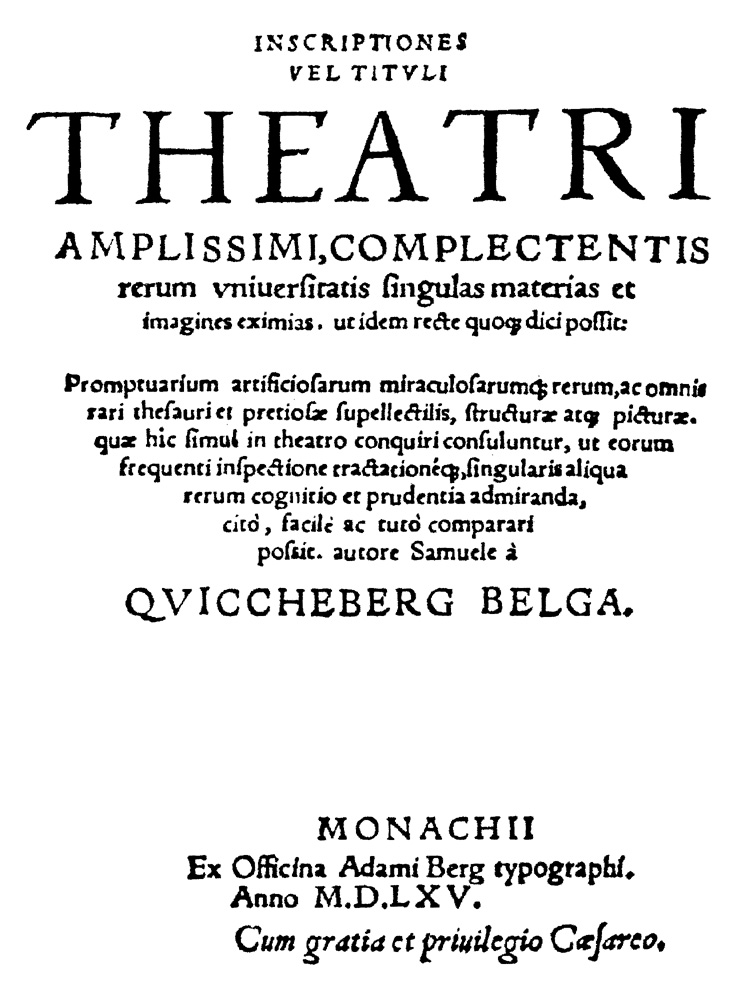QUICHELBERG, Samuel.
(1529 – 1572)
Quichelberg went in 1547 to the University of Basel where he studied medicine. Afterwards he went to Freiberg where he became interested in antiquarian pursuits, especially heraldry. Later, he established himself in Ingolstadt, where he opened a medical practice, and published several medical works. In 1553, he came to the attention of Albert V of Bavaria, and he was brought to Munich to organize the antiquarian collections of the Royal family.
Biographical references: BAB: 551, 358-366. • Biografisch Woordenboek België. • Broeckx, C., Aenteekeningen over Samuel Quickelbergs oudheidskundige arts der XVIe eeuw. Antwerpen, 1862. • DBA: I 990, 234-237; II 1035, 2-3. • Hirsch, Biographisches Lexikon, 1884-8: 4, 649-50 [by C.E. Daniels]. • Jöcher, Gelehrten-Lexikon, 1750-51. • WBI.

1. Latin, 1565.
Inscriptiones | Vel Titvli | Theatri | Amplissimi, Complectentis | rerum vniuersitatis singulas materias et | imagines eximias, ut idem recte quoqz dici possit: | Promptuarium artificiosarum miraculosarumqz rerum, ac omnis | rari thesauri et pretiosæ supellectilis, structuræ atqz picturæ. | quæ in simul in theatro conquiri cosuluntur, ut eorum | frequenti inspectione tractationéqz, singularis aliqua | rerum cognitio et prudentia admiranda, | citò, sacilè ac tutò compariari | possit. autore Samuele à | Qviccheberg Belga. | Monachii | Ex Officina Adami Berg typographi. | Anno M.D.LXV. | Cum gratia et priuilegio Cæsareo.
4°: [64] p.
Rare. One of the first published guide books for building natural history collections, and considered to be the earliest printed museological tract. Quichelberg carefully categorizes the contents and organization of an ideal museum and library, covering all types of artwork, plants, animals and minerals, ... "a rich theater of objects of the whole universe." He employs for the first time, the term Wunderkammer (repository of extraordinary objects), and stresses the importance of preparing collection catalogs.
Bibliographical references: Hajos, E.M., "Samuel Quiccheberg's 'Inscriptiones vel tituli theatri amplissimi'", Biblioteque d'Humanisme et Renaissance, 25, (1963), 207-11. • Klemm, Geschichte der Sammlungen, 1837: 196. • Murray, Museums, 1904: 1, 28 & 3, 117. • Wilson, History of Mineral Collecting, 1994: 19-20.
.